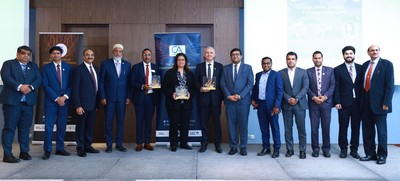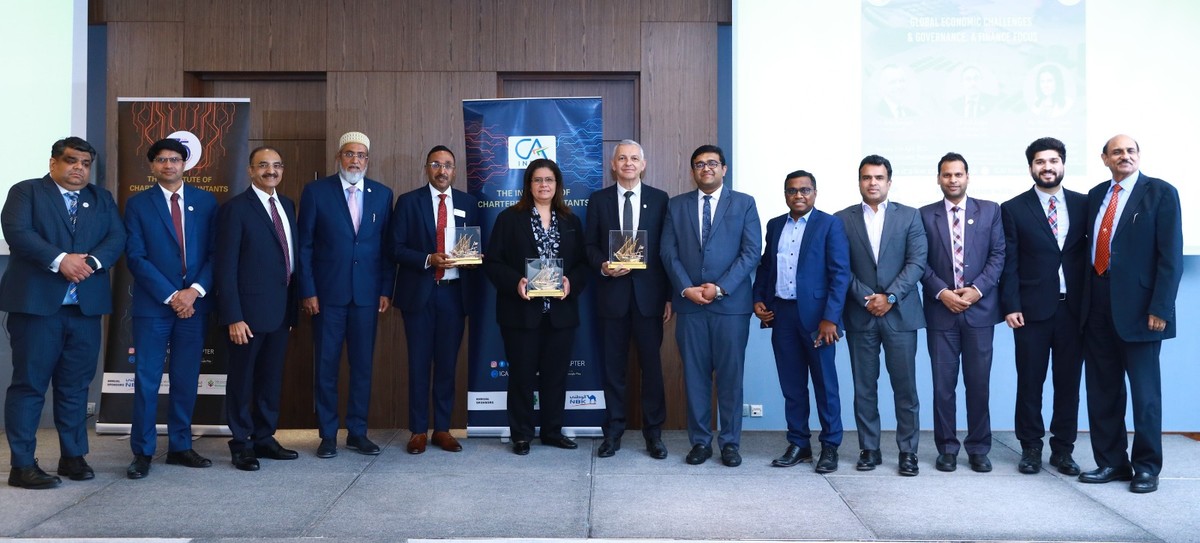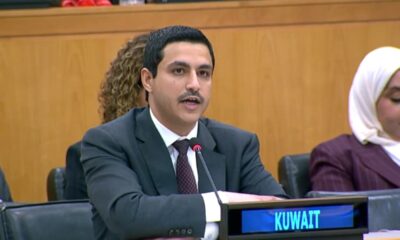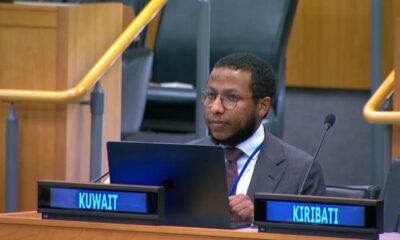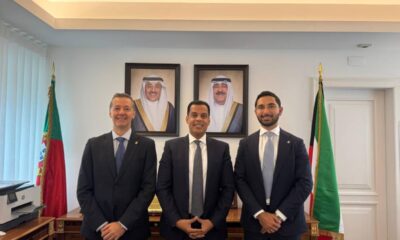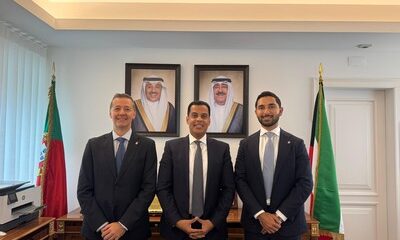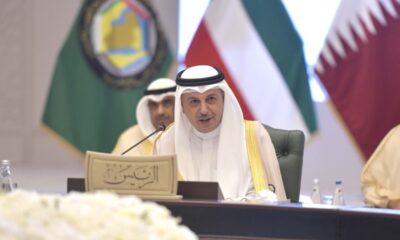KUWAIT CITY, April 29: The Institute of Chartered Accountants of India, Kuwait Chapter (ICAIKC) hosted the Continuing Professional Education (CPE) event on “Global Economic Challenges and Governance: A Finance Focus.” The event attracted a strong turnout from the professional community, driven by the relevance of its theme and the insights offered by a distinguished panel of international experts.
CA Aditya Dhanuka, Chairperson of ICAIKC, formally inaugurated the event by welcoming the distinguished speakers and participants. He also provided an update on ongoing chapter initiatives and highlighted the vital role that accounting professionals play in shaping ethical, transparent, and resilient economic systems. His remarks set the tone for an evening of meaningful dialogue and knowledge exchange.
Esteemed Speakers Share Global Perspectives
The event featured a stellar lineup of speakers, each of them bringing distinct global insights into the discussion:
Jean Bouquot, President of the International Federation of Accountants (IFAC), delivered a compelling keynote on the evolving dynamics of the global economy. Drawing on IFAC’s policy work, he emphasized the importance of resilience, adaptability, and governance reforms in both public and private institutions. He highlighted sustainability related developments globally and the need to counter greenwashing. He also underscored the need for global collaboration among accounting bodies to foster sustainability, ethical conduct, and trust in financial systems.
Mona El Chami, Senior Governance Specialist at the World Bank, provided a policy-oriented lens on governance frameworks across developing economies. She elaborated on the World Bank’s role in advising governments on fiscal accountability, anti-corruption measures, and institutional strengthening. Her talk highlighted the interconnectedness of sound governance and economic stability, advocating for inclusive institutions and transparent policymaking.
CA Atul Gupta, Past President of ICAI and current IFAC Board Member, offered a strategic analysis of how global economic trends are impacting India and other emerging markets. He spoke about the transformational role of technology in governance, the rise of digital public infrastructure, the essentiality of independent director, and the need for ethics-driven assurance practices. His address called on Chartered Accountants to balance profit with sustainability and to take the lead in promoting good governance.
The session was further enriched by the presence of special guests:
Prof. Shahzad Uddin (University of Essex), Prof. Musa Mangena (University of Nottingham), Mr. Sabah Mubarak Al Jalawi (Chairman, KAAA), Mr. Mohammad Shuaib (Member, KAAA), Dr. Souod Alazemi (Faculty Member, PAAET), and Mr. Ahmed Bastaki, whose participation added academic and regulatory depth to the discussions.
The event was seamlessly moderated by CA Ketan Puri, whose professionalism and engaging style ensured a smooth and insightful program. The event concluded with a warm vote of thanks by CA Andaleeb Girkar, who expressed heartfelt appreciation to the speakers, special guests, attendees, and organizing committee. She also extended gratitude to the chapter’s annual sponsors—NBK, Al Mulla Exchange, and Cube Innovators—as well as media partners IndiansinKuwait.com (IIK), Times Kuwait, and Arab Times for their continued support.
The event reinforced ICAIKC’s dedication to fostering ongoing professional excellence and promoting dialogue on globally relevant economic and governance challenges. It served as a valuable platform for knowledge sharing and reinforced the chapter’s mission to equip finance professionals in Kuwait with world-class insights and expertise.

 Politics18 hours ago
Politics18 hours ago
 Latest News19 hours ago
Latest News19 hours ago
 Latest News17 hours ago
Latest News17 hours ago
 Politics9 hours ago
Politics9 hours ago
 Latest News9 hours ago
Latest News9 hours ago
 Politics8 hours ago
Politics8 hours ago
 Business9 hours ago
Business9 hours ago
 Business7 hours ago
Business7 hours ago
